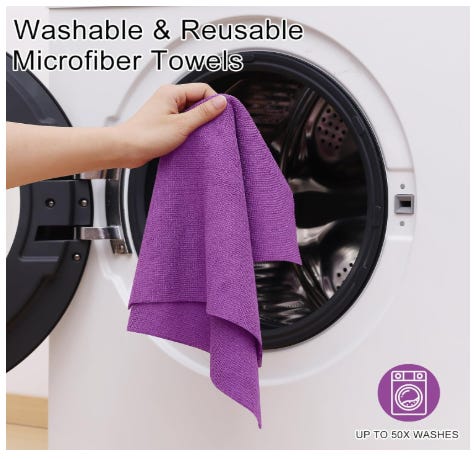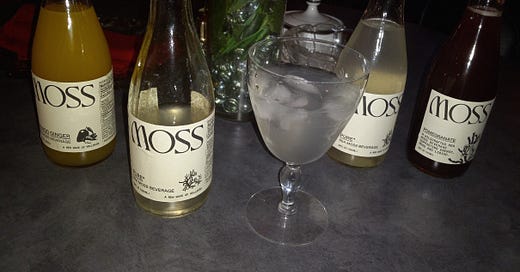
Retail assists hospitals in rocky COVID-19 circumstances

Accessing personal protective equipment (PPE) has become a touchy subject in recent weeks, especially considering hospitals are allegedly terminating doctors for speaking up about a lack of supplies. For retail employees trying to prevent the spread of coronavirus disease 2019 (COVID-19), it’s been complicated, too. While some retailers have had to temporarily (or permanently) shut their doors, others are left wondering what is the safest way to interact with consumers while still doing their jobs.
Over the weekend, the Centers for Disease Control and Prevention (CDC) updated their status on face masks from health-care-workers-only to the general population: “Everyone should wear a cloth face cover when they have to go out in public, for example to the grocery store or to pick up other necessities.” And that “everyone” includes workers in various essential companies, from hospitals and doctors’ offices to retail needs.
While the public is welcome to make their own cloth masks (and has do-it-yourself guidance from the CDC and beyond), retailers and beauty brands have become increasingly proactive in using their own store locations and warehouses to assist frontline workers.
Retail Space Becomes DIY PPE Advocates
As of this publication date, there are 374,329 COVID-19 infections in the United States and 12,064 deaths. (Worldwide the number has skyrocketed to 1,282,931 infections and 72,774 deaths.) But the public is still instructed to “NOT use a facemask meant for a health care worker” in hopes that people will stock stockpiling inventory that is needed immediately for medical professionals. Now retailers with the space and supplies are creating inventory for health care workers to continue to work in safe environments.
Business Insider reports that Burberry is using factory space normally set aside for its trench coats to make non-surgical gowns and 100K surgical masks for health care workers in United Kingdom hospitals.
Louis Vuitton SE (or LVMH) re-opened one of its French factories so volunteers can create face masks for frontline medical workers.
According to LVMH’s Instagram account: “For the time being, our petites mains have voluntarily undertaken to produce masks for those invaluable people working selflessly on the front lines.”
ADVERTISEMENT ~ Amazon
As an Amazon Affiliate, I earn a percentage for each purchase with my referral links.
Additionally, according to Reuters, the latter brand (which owns Louis Vuitton and Christian Dior) ordered 40 million health masks from an unnamed Chinese supplier to give to French health care professionals. Free hand sanitizer is also being produced and given to health care workers.
In the United States, Joann Fabrics has asked for volunteers across the country to donate 100 million masks for medical personnel. With featured at-home videos to assist anyone who wants to help, so far volunteers have created 40.37 million.
And while Zara is figuring out how to use their factories to make hospital gowns for Spanish health care workers, beauty and apparel brands such as Hermès, Kering, Moncler, Prada, Richemont and Versace have pledged millions to assist frontline workers.
Giving Back Through the COVID-19 Solidarity Response Fund
As of now, the COVID-19 Solidarity Response Fund is the sole way for individual donors and charities to contribute to the World Health Organization’s (WHO) global response efforts. According to its official site, “Donations support WHO’s work to track and understand the spread of the virus; to ensure patients get the care they need and frontline workers get essential supplies and information; and to accelerate efforts to develop vaccines, tests, and treatments.”
According to H&M Foundation’s official site, the retailer has donated $500K to COVID-19 Solidarity Response Fund.
“We are all experiencing an extraordinary situation, which requires as many as possible to get involved to enable response efforts,” said Diana Amini (Global Manager, H&M Foundation) in a recent press release. “The H&M Foundation’s contribution will be used to protect vulnerable patients and health workers in the front line through the establishment of intensive care units and access to protective equipment. We encourage everyone that [wants] to help to get involved.”
From Customer Assistance to ‘Stop-Sales’
While essential retailers are hiring in droves to effectively handle the increase in online deliveries, drive-up purchases and inventory stocking, others have found themselves having to stop selling supplies to help with assisting health care professionals. One of those retailers is Home Depot, which voluntarily froze pricing nationwide for certain product categories. The company executed a “Stop-Sale” on all N95 masks in stores and on Home Depot’s retailer website to redirect all shipments to be donated to hospitals, health care providers and first responders across the United States. Home Depot’s corporate site also confirms that it has donated PPE and additional products to the health care industry.
With increasing knowledge about how COVID-19 is spreading, every company (and individual) is adjusting as it goes. Retailers are taking employees’ temperatures before shifts can start; providing masks, hand sanitizer and gloves as needed; and evaluating paid-time off for ill or (potentially) COVID-19 exposed employees. At AutoZone, the customer stays in the car to help with auto-related questions (such as on-board diagnostics checks for engine lights) and driving assistance. Publix is installing PlexiGlass shields to separate customers from cash registers, pharmacies and customer service counters. And in-store product testing and food samples in Sam’s Club, Costco and other like-minded retailers have been ditched completely.
The retail and health care industry have physically and culturally changed to get a better understanding of what is set to happen in weeks to come. As health care professionals and scientists learn as they go about prevention methods and best practices, the retail industry is taking notes to do the same.
(Note: This post was originally published as an Upwork freelancer for RETHINK Retail.)
Did you enjoy this post? You’re also welcome to check out my Substack columns “Black Girl In a Doggone World,” “BlackTechLogy,” “Homegrown Tales,” “I Do See Color,” “One Black Woman’s Vote,” and “Window Shopping” too. Subscribe to this newsletter for the monthly post on the third Thursday.
If you’re not ready to subscribe but want to support my writing, you’re welcome to tip me for this post! I’ll buy a dark hot chocolate on you. Thanks for reading!











